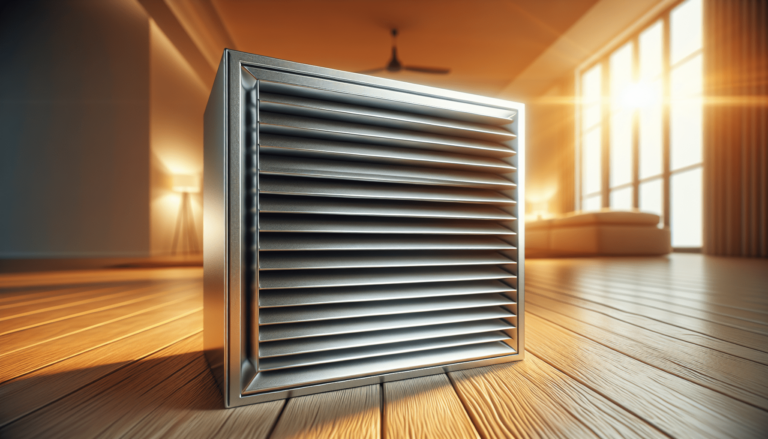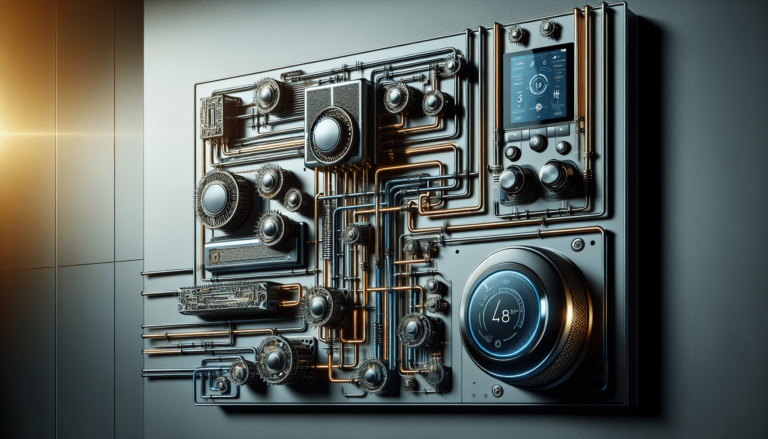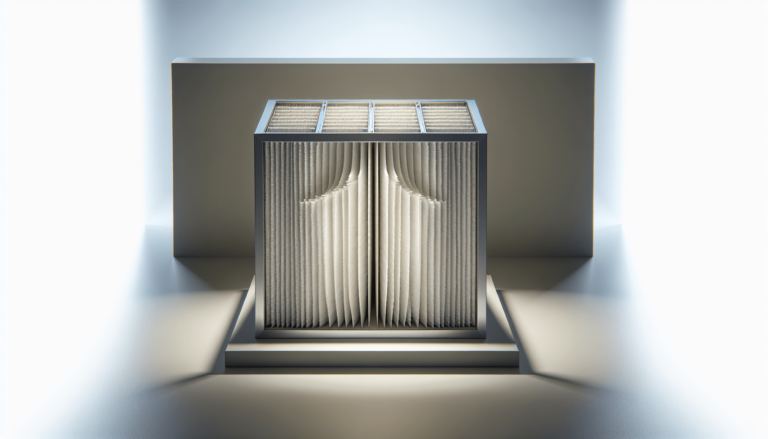

HVAC Services
Get Professional Repairs From The Area's Trusted HVAC Technicians. Ask About Our Services! We Offer Professional Heating & Cooling System Repairs And Guarantee Long-Lasting Results.
Got Question? Call us: (850) 678-2665Financing
Residential HVAC: How To Optimize For Every Season
Looking to optimize your residential HVAC system for every season? This article provides expert tips on maximizing performance and efficiency. Discover how to ensure comfort and savings regardless of the weather.
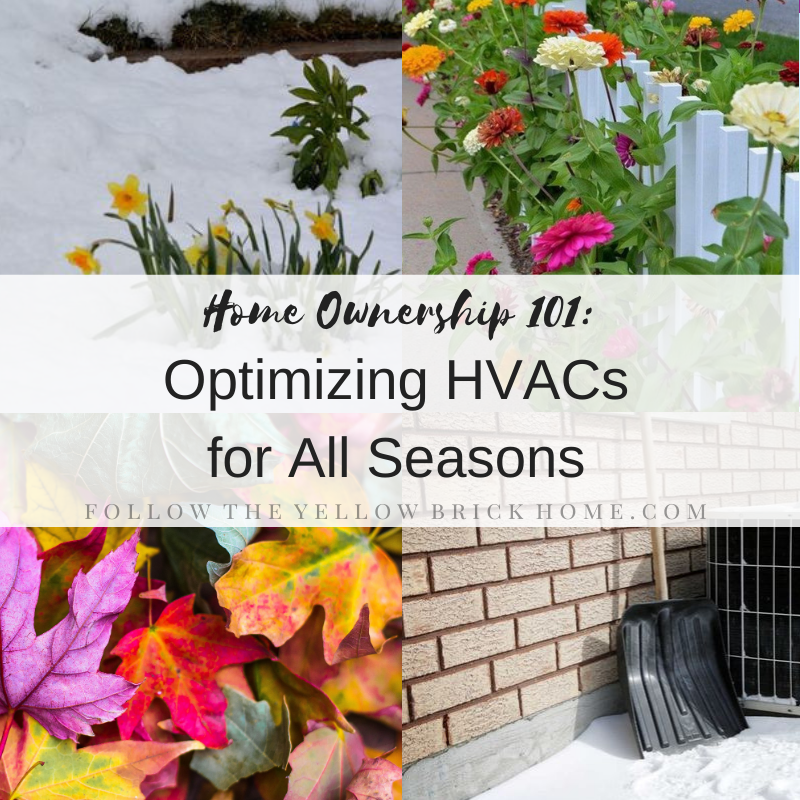
Are you looking to maximize the performance and efficiency of your residential HVAC system throughout every season? Look no further! In this article, we will provide you with valuable insights and tips on how to optimize your HVAC system to ensure comfort and savings no matter the weather. From adjusting thermostat settings to regular maintenance and air filter replacements, we’ve got you covered. So, let’s dive right in and discover how you can make the most out of your home’s HVAC system. Whether it’s hot summers or chilly winters, we’ve got the solutions for you.
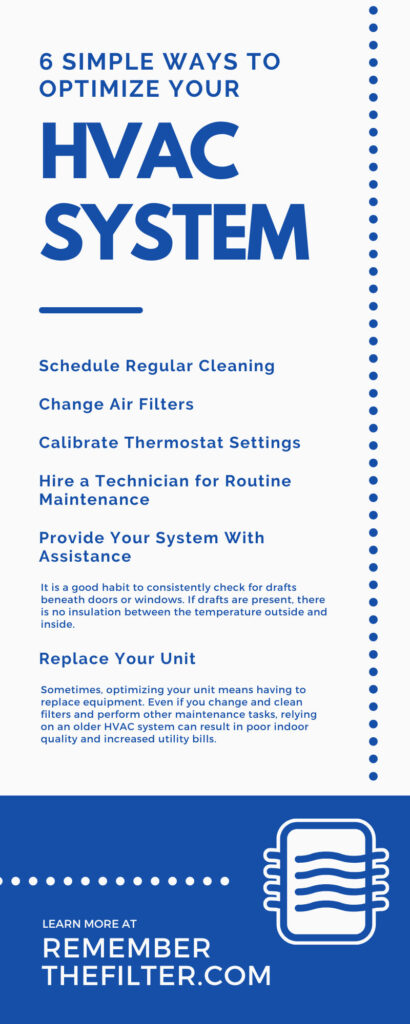
This image is property of cdn.shopify.com.
Understanding Residential HVAC Systems
When it comes to keeping your home comfortable throughout the year, a well-functioning HVAC system is essential. HVAC stands for heating, ventilation, and air conditioning, and it refers to the system responsible for controlling the temperature, humidity, and air quality in your home. Understanding how these systems work and the components involved is crucial for optimal HVAC performance.
Components of a Residential HVAC System
A typical residential HVAC system consists of several key components. The first is the furnace, which is responsible for heating the air before it is distributed throughout your home. The furnace may be fueled by natural gas, oil, or electricity. Next, there is the air conditioner, which cools the air by removing heat and humidity. The air conditioner uses a refrigerant to facilitate the cooling process.
In addition to the furnace and air conditioner, your HVAC system includes a network of ducts that distribute conditioned air throughout your home. These ducts should be properly sealed to prevent air leaks and maintain efficiency. The HVAC system also includes a thermostat, which allows you to control the temperature settings in your home.
How HVAC Systems Control Temperature
Residential HVAC systems control temperature by utilizing a combination of heating and cooling mechanisms. During the colder months, the furnace heats the air and then distributes it through the ductwork to each room in your home. This ensures that every corner of your house is warm and comfortable.
In contrast, during the warmer months, the air conditioner takes over and cools the air before it is distributed. The air conditioner removes heat and humidity from the indoor air, providing a refreshing and cool environment. By alternating between heating and cooling modes, your HVAC system keeps your home at a comfortable temperature year-round.
Benefits of a Well-Functioning HVAC System
Having a well-functioning HVAC system in your home offers numerous benefits beyond just maintaining a comfortable temperature. One significant advantage is improved energy efficiency, which can lead to cost savings on your utility bills. A properly functioning HVAC system can also improve indoor air quality by filtering out pollutants and ensuring adequate ventilation.
Another advantage is the extended lifespan of your HVAC system. Regular maintenance and proper care can help prevent breakdowns and keep your system running smoothly for years to come. Additionally, a well-functioning HVAC system can increase the value of your home and improve its overall comfort and livability.
Preparing for Winter: Heating Optimization
As the colder months approach, it’s important to prepare your HVAC system for optimal heating performance. By addressing any potential issues and optimizing your thermostat settings, you can ensure a cozy and comfortable winter season.
Signs of Heating System Issues
Before winter arrives, it’s crucial to be aware of any signs that indicate your heating system may have issues. These signs can include strange noises, uneven heating throughout your home, frequent cycling on and off, and increased energy bills. If you notice any of these signs, it’s essential to address the problem before the cold weather sets in.
Scheduling Annual HVAC Maintenance
One of the best ways to prevent heating system issues is by scheduling annual HVAC maintenance. A professional technician can inspect your system, clean or replace air filters, lubricate moving parts, and identify any potential problems. Regular maintenance can improve energy efficiency, extend the lifespan of your system, and ensure that it operates at its peak performance during the winter months.
Optimizing Thermostat Settings
Optimizing your thermostat settings is another crucial step in preparing for winter. Set your thermostat to a comfortable temperature while you’re at home, and consider lowering it a few degrees when you’re away or sleeping to save on energy costs. If you have a programmable thermostat, take advantage of its features to create a heating schedule that aligns with your daily routine.
Using Programmable Thermostats
Programmable thermostats offer a convenient and energy-efficient way to control your heating system. By setting different temperature levels for different times of the day, you can ensure that your home is warm and comfortable when you need it most. Programmable thermostats can also adjust temperatures automatically based on occupancy, helping you save on energy costs without sacrificing comfort.
Sealing Air Leaks and Adding Insulation
To maximize heating efficiency during the winter, it’s important to seal any air leaks in your home and add insulation where needed. Common areas for air leaks include windows, doors, and vents. These leaks can allow cold air to enter your home and warm air to escape, leading to higher energy consumption and decreased comfort. By sealing these leaks and adding insulation to walls, attics, and crawl spaces, you can keep your home cozy and warm all winter long.
Managing Spring: Transitioning from Heating to Cooling
As winter comes to an end and springtime approaches, it’s time to transition your HVAC system from heating to cooling. By taking a few simple steps, you can ensure that your system is ready to keep you cool and comfortable during the warmer months.
Inspecting and Cleaning Air Filters
Before switching on your air conditioning, it’s important to inspect and clean or replace your air filters. Over time, filters can become clogged with dust, dirt, and other particles, which can restrict airflow and reduce cooling efficiency. By cleaning or replacing your air filters regularly, you can improve indoor air quality and ensure optimal cooling performance.
Checking and Adjusting Air Vents
Check all the air vents in your home to make sure they are open and not blocked by furniture or other objects. Closed or blocked vents can restrict airflow, leading to uneven cooling and reduced efficiency. By ensuring that air vents are clean and unrestricted, you can maximize the effectiveness of your cooling system and maintain a comfortable indoor environment.
Testing Cooling Functions
Before the temperatures start to rise, it’s important to test the cooling functions of your HVAC system. Switch on your air conditioner and verify that it is blowing cold air and maintaining the desired temperature. If you notice any issues or the cooling performance seems inadequate, it may be necessary to have a professional technician inspect and service your unit.
Cleaning Exterior Condenser Coils
The condenser coils on the exterior unit of your air conditioner can become dirty and clogged with debris over time. This can impede the heat exchange process and reduce cooling efficiency. Before the cooling season begins, it’s essential to clean the condenser coils to remove any dirt, leaves, or other debris. This will help your air conditioner operate at its optimal level and keep your home cool and comfortable.
Ensuring Proper Outdoor Unit Clearance
The outdoor unit of your air conditioning system requires proper clearance to operate efficiently. Make sure that there are no obstructions around the outdoor unit, such as overgrown vegetation or debris. Clear away any leaves, grass clippings, or other debris that may have accumulated near the unit to ensure optimal airflow and prevent damage to the system.
Surviving Summer: Maximizing Efficiency and Cooling
Summer can bring sweltering temperatures, but with a few simple strategies, you can maximize the efficiency of your HVAC system and keep your home cool and comfortable throughout the season.
Tips for Efficient Cooling
To optimize cooling efficiency, be mindful of some simple tips. First, keep blinds or curtains closed during the daytime to prevent heat from sunlight entering your home. Second, avoid using heat-generating appliances during the hottest parts of the day. Third, consider using fans to supplement cooling, as they can create a cooling effect by circulating air. By implementing these strategies, you can reduce the workload on your air conditioning system and save on energy costs.
Using Ceiling Fans to Supplement Cooling
Ceiling fans are an effective and energy-efficient way to supplement your cooling system during the summer. By using ceiling fans in conjunction with your air conditioner, you can create a comfortable breeze that allows you to raise the thermostat a few degrees without sacrificing comfort. This can result in significant energy savings while keeping your home cool and comfortable.
Maintaining Optimal Humidity Levels
Humidity levels can significantly impact your comfort during the summer months. High humidity can make you feel sticky and uncomfortable, while low humidity can lead to dry skin and respiratory issues. To maintain optimal humidity levels, consider using a dehumidifier in high-humidity areas of your home and using a humidifier in dry climates or during periods of low humidity.
Avoiding Overworking the AC System
Overworking your air conditioning system can lead to increased energy consumption and potential system breakdowns. To avoid overworking the AC system, set your thermostat to a reasonable temperature and avoid constantly adjusting it. Additionally, make sure your home is properly insulated and sealed to prevent cool air from escaping and hot air from entering. This will help your system operate efficiently and maintain a comfortable indoor environment.
Addressing Common AC Problems
Even with proper maintenance and care, air conditioning systems can experience issues from time to time. Some common problems include refrigerant leaks, frozen coils, and malfunctioning thermostats. If you notice any unusual noises, decreased cooling performance, or other issues with your AC system, it’s best to consult a professional HVAC technician for proper diagnosis and repair.
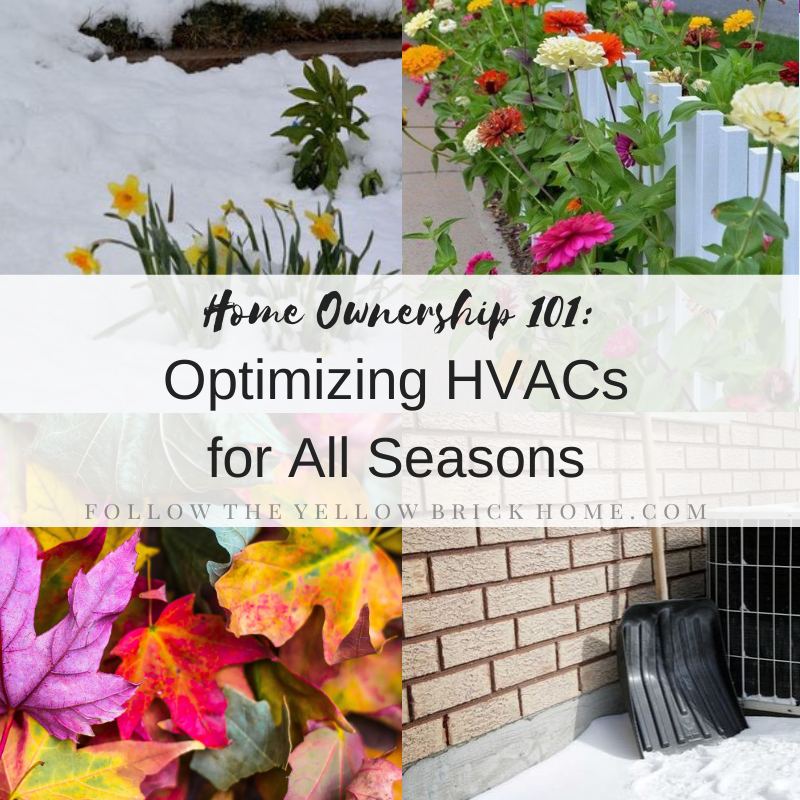
This image is property of followtheyellowbrickhome.com.
Transitioning to Autumn: Preparing for Colder Months
As summer fades and autumn arrives, it’s important to prepare your HVAC system for the colder months ahead. By addressing key maintenance tasks and making necessary adjustments, you can ensure that your system operates efficiently and effectively during the autumn season.
Checking and Sealing Ductwork
Before the temperatures drop, it’s essential to check your ductwork for any leaks or damage. Leaky ducts can waste energy and reduce heating efficiency. Seal any gaps or cracks in the ductwork using duct sealant or tape. Additionally, insulate ducts in unconditioned areas such as attics, basements, and crawl spaces to prevent heat loss and maintain warmer indoor temperatures.
Testing the Heating System
As the heating season approaches, it’s important to test your heating system to ensure that it is functioning properly. Switch on your furnace and verify that it produces warm air and distributes it evenly throughout your home. If you notice any issues or abnormal smells, it’s best to have a professional technician inspect and service your system.
Cleaning Registers and Vents
Take the time to clean registers and vents before the heating season begins. Over time, dust, dirt, and debris can accumulate, restricting airflow and reducing heating efficiency. Use a vacuum cleaner or a soft brush to remove any buildup and ensure optimal airflow. This will help your heating system operate efficiently and provide even heating throughout your home.
Insulating Exposed Pipes
Insulating exposed pipes is an important step in preparing your HVAC system for colder temperatures. Exposed pipes, especially those located in unconditioned areas, can freeze and burst during cold weather. To prevent this, use insulation sleeves or wraps to cover exposed pipes and protect them from freezing. This will help prevent water damage and costly repairs.
Removing Debris from Outdoor Units
Before winter arrives, it’s crucial to remove any debris that may have accumulated around your outdoor HVAC unit. Leaves, twigs, and other debris can obstruct airflow and impede the operation of your system. Clear away any debris and trim any vegetation that may be encroaching on the unit to ensure optimal performance and prevent potential damage.
Improving Indoor Air Quality Year-Round
Good indoor air quality is essential for a healthy and comfortable living environment. By following some simple practices, you can improve the air quality in your home year-round and maintain a healthy living space.
Choosing the Right Air Filters
Air filters play a critical role in maintaining indoor air quality by trapping dust, pollen, pet dander, and other airborne particles. When selecting air filters, choose ones with a high Minimum Efficiency Reporting Value (MERV) rating. Higher MERV rating filters can capture more particles, but they may also restrict airflow. Consider your specific needs and consult with a professional to choose the right air filters for your home.
Regularly Cleaning and Dusting
Regular cleaning and dusting can contribute to better indoor air quality. Dust and allergens can settle on surfaces and become airborne when disturbed. Clean and dust surfaces frequently, using microfiber cloths or electrostatic dusters that capture particles instead of spreading them around. Vacuum your carpets and upholstery regularly, and consider using a vacuum cleaner equipped with a HEPA filter for better air filtration.
Ventilating Your Home
Proper ventilation is crucial for maintaining good indoor air quality. Open windows and doors whenever weather permits to allow fresh air to circulate in your home. Consider installing exhaust fans in bathrooms and kitchens to remove moisture, odors, and pollutants from these areas. Additionally, you may want to invest in a mechanical ventilation system that provides continuous fresh air exchange while filtering out contaminants.
Using Air Purifiers
Air purifiers can be an effective tool for improving indoor air quality. These devices use filters, ionizers, or other technologies to remove contaminants from the air, such as dust, pollen, smoke, and pet dander. Air purifiers can be particularly beneficial for individuals with allergies, asthma, or other respiratory conditions. Choose air purifiers that are suitable for the size of your rooms and consider ones with HEPA filters for optimal performance.
Testing Indoor Air Quality
To assess the indoor air quality in your home, you may want to consider testing. Professional indoor air quality tests can measure various factors such as humidity levels, particulate matter, carbon dioxide levels, and volatile organic compounds (VOCs). Based on the test results, you can take appropriate measures to address any specific air quality issues and ensure a healthy living environment for you and your family.
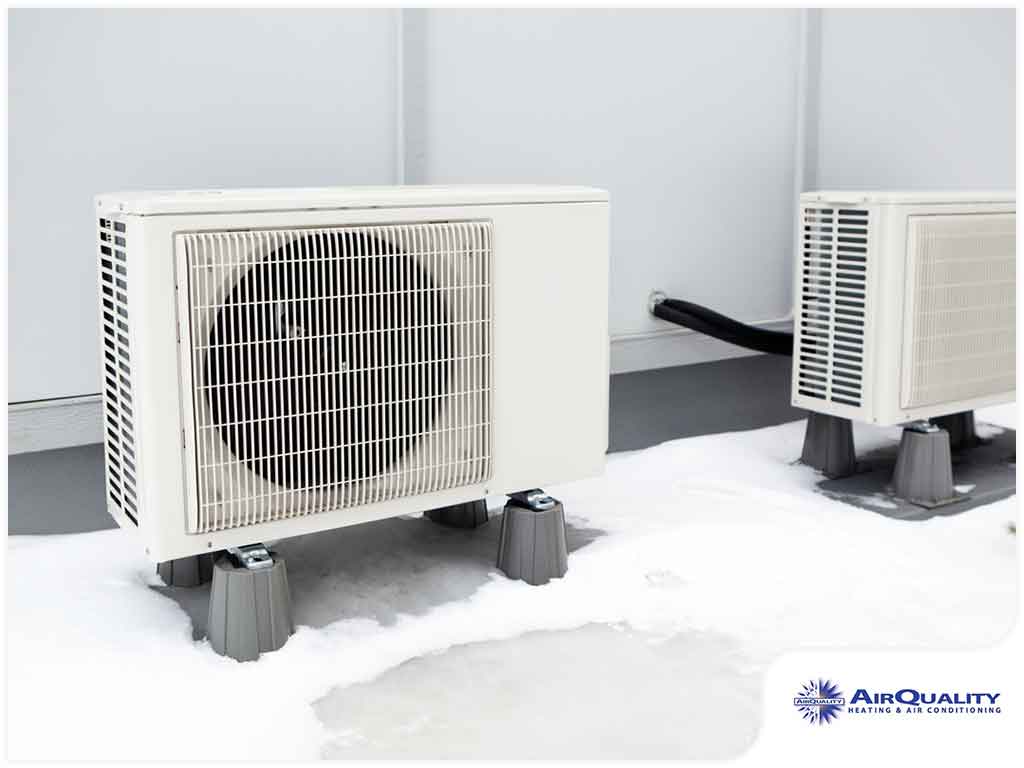
This image is property of www.airandheat.net.
Energy Efficiency Tips for Lowering Costs
Maintaining energy efficiency can not only help lower your utility bills but also reduce your environmental footprint. By implementing some energy-saving strategies, you can enjoy the benefits of lower costs and a more eco-friendly home.
Sealing and Insulating Ductwork
Sealing and insulating ductwork is a crucial step in improving energy efficiency. Leaky ducts can significantly reduce HVAC system performance and waste energy. Seal any gaps or cracks in the ductwork using duct sealant or tape, and insulate ducts in unconditioned areas to prevent heat loss or gain. Properly sealed and insulated ductwork keeps conditioned air where it should be and reduces energy waste.
Using Zoning Systems
Zoning systems allow you to control the temperature in different areas or zones of your home independently. By dividing your home into zones, you can adjust the temperature settings based on occupancy and specific needs. This allows you to heat or cool only the areas that are being used, reducing energy consumption and improving overall efficiency.
Investing in Energy-Efficient Units
When it’s time to replace your HVAC system or its components, consider investing in energy-efficient units. Look for equipment with a high Seasonal Energy Efficiency Ratio (SEER) rating for air conditioners and a high Annual Fuel Utilization Efficiency (AFUE) rating for furnaces. Energy-efficient units use less energy to deliver the same level of comfort, resulting in significant cost savings over time.
Utilizing Programmable Thermostats
Programmable thermostats are an excellent tool for energy savings and enhancing comfort. By programming temperature settings to align with your daily routine, you can avoid heating or cooling an empty home. Set your thermostat to adjust temperatures automatically when you’re away or sleeping to save on energy costs. Programmable thermostats allow you to optimize comfort while ensuring efficient use of energy.
Taking Advantage of Natural Ventilation
When the weather permits, take advantage of natural ventilation to cool your home and reduce reliance on air conditioning systems. Open windows and doors to let fresh air in and create cross-ventilation. Using natural ventilation during cooler periods of the day can help cool your home and reduce the need for energy-intensive cooling systems.
Handling HVAC Emergencies
Emergencies can happen at any time, and when it comes to your HVAC system, it’s important to know how to handle them. By being prepared and taking appropriate measures, you can minimize the impact of emergencies and ensure the safety and comfort of your home.
Identifying HVAC System Emergencies
Some HVAC system issues may require immediate attention and can be classified as emergencies. These emergencies may include carbon monoxide leaks, gas leaks, electrical malfunctions, refrigerant leaks, or complete system failures. It’s important to be familiar with the signs of these emergencies and take appropriate action to protect your home and family.
Knowing When to Call for Professional Help
In the event of an HVAC emergency, it’s essential to know when to call for professional help. While some minor issues can be resolved with simple troubleshooting, more complex problems require the expertise of a qualified HVAC technician. If you are unsure about the severity of the issue or are unable to diagnose and repair the problem yourself, it’s best to contact a professional as soon as possible.
Taking Precautions during Extreme Weather
Extreme weather conditions can place additional stress on your HVAC system and increase the likelihood of emergencies. During times of extreme heat or cold, make sure to take precautions to protect your system and maintain a comfortable living environment. Avoid overworking your system by setting reasonable temperature settings and providing proper insulation and ventilation for your home.
Considering Backup Power Options
Power outages can disrupt your HVAC system and leave you without heating or cooling during extreme weather conditions. To protect your home from unexpected power loss, consider investing in backup power options such as a generator or battery-operated HVAC system. Backup power can help maintain a comfortable environment and prevent damage to your HVAC system during power outages.
Creating an Emergency HVAC Kit
Having an emergency HVAC kit ready can be helpful during HVAC system emergencies. Your kit should include essential items such as a flashlight, extra batteries, a portable fan or heater, duct tape, and contact information for emergency HVAC technicians. By having these items readily available, you can respond quickly to emergencies and ensure the safety and comfort of your home.
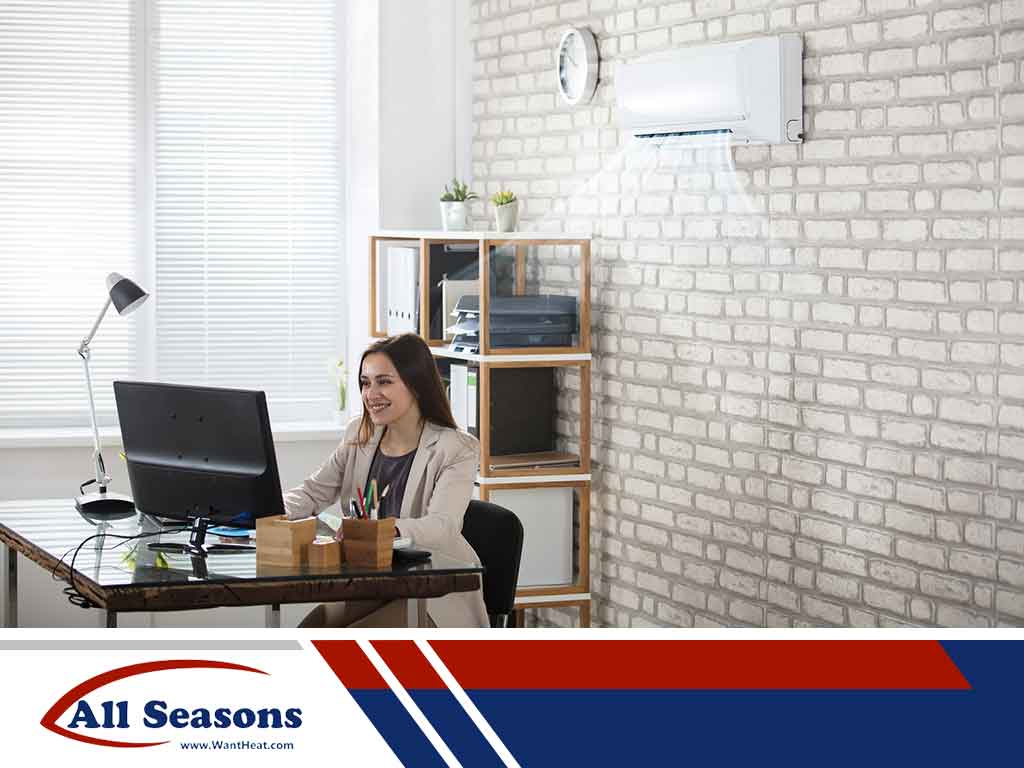
This image is property of www.wantheat.com.
Importance of Regular HVAC Maintenance
Regular HVAC maintenance is crucial for the ongoing performance and longevity of your system. By scheduling regular maintenance, you can reap numerous benefits that enhance comfort, energy efficiency, and indoor air quality.
Extending HVAC System Lifespan
Regular maintenance can significantly extend the lifespan of your HVAC system. Routine inspections, cleaning, and lubrication help prevent wear and tear on components, reducing the likelihood of breakdowns and the need for costly repairs. With proper maintenance, your system can operate effectively for many years, saving you money on premature replacements.
Improving Energy Efficiency
A well-maintained HVAC system operates more efficiently, reducing energy consumption and saving you money on utility bills. During maintenance visits, technicians clean or replace air filters, lubricate moving parts, and tune the system for peak performance. This enhances airflow, reduces system strain, and maximizes energy efficiency, resulting in lower energy costs.
Enhancing Indoor Air Quality
HVAC maintenance plays a crucial role in enhancing indoor air quality. Regularly cleaning or replacing air filters helps remove dust, pollen, pet dander, and other airborne particles from the circulating air. Additionally, routine maintenance includes cleaning ductwork, coils, and other system components to reduce the buildup of dust and contaminants. These measures contribute to cleaner and healthier indoor air.
Minimizing System Breakdowns
Regular HVAC maintenance helps identify and address potential issues before they escalate into major problems. During maintenance visits, technicians perform thorough inspections, looking for signs of wear, leaks, or other issues. By catching and resolving problems early on, you can minimize the likelihood of system breakdowns and avoid costly emergency repairs.
Ensuring Proper Operation
Ultimately, regular maintenance ensures that your HVAC system operates as intended, providing reliable heating and cooling year-round. By staying on top of routine maintenance tasks, you can have peace of mind knowing that your system is in good working order and ready to keep your home comfortable, regardless of the season.
Finding a Reliable HVAC Service Provider
When it comes to HVAC service, finding a reliable and reputable provider is crucial. By considering a few key factors, you can make an informed decision and ensure that you receive quality service for your HVAC needs.
Checking Licenses and Certifications
Before hiring an HVAC service provider, check for appropriate licenses and certifications. Licenses indicate that the provider meets local and state requirements to perform HVAC work. Certifications, such as NATE (North American Technician Excellence) certification, demonstrate that technicians have completed professional training and possess the necessary skills and knowledge to handle HVAC systems effectively.
Reading Customer Reviews and Testimonials
Take the time to read customer reviews and testimonials about potential HVAC service providers. Online reviews can provide insights into the quality of service, customer satisfaction levels, and overall professionalism of a company. Look for positive reviews, but also pay attention to any recurring negative feedback that may raise concerns.
Seeking Recommendations from Trusted Sources
Ask for recommendations from trusted sources such as friends, family, or neighbors who have recently used HVAC services. Their firsthand experiences and feedback can help you identify reliable providers and avoid potential pitfalls. Personal recommendations are often more trustworthy and valuable than online reviews from unknown sources.
Considering Experience and Expertise
Experience and expertise are important factors to consider when choosing an HVAC service provider. Look for providers with a proven track record and a significant number of years in the industry. Experienced technicians are more likely to have encountered a wide range of HVAC issues and can apply their knowledge to diagnose and resolve problems effectively.
Evaluating Service and Maintenance Agreements
When selecting an HVAC service provider, evaluate the service and maintenance agreements they offer. Look for providers that offer comprehensive maintenance plans and ongoing service to keep your HVAC system in optimal condition. These agreements often include routine maintenance visits, priority scheduling, and discounts on repairs. Investing in a service agreement can help ensure the long-term performance and reliability of your HVAC system.
In conclusion, understanding residential HVAC systems and implementing appropriate maintenance and optimization strategies can significantly enhance comfort, energy efficiency, and indoor air quality in your home. By addressing heating optimization, cooling transition, efficiency maximization, and seasonal preparation, you can make the most of your HVAC system year-round. Additionally, by prioritizing regular maintenance, finding a reliable service provider, and adopting energy-saving practices, you can ensure the ongoing reliability and longevity of your HVAC system. Stay proactive, stay comfortable, and enjoy a healthier and more energy-efficient home with a well-functioning residential HVAC system.





